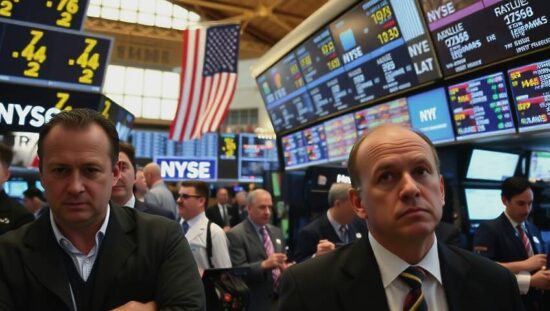Trading commenced on Friday with a weaker performance for the German DAX index. By 9:30 AM, the benchmark index was recorded at approximately 23,325 points, representing a 0.5% decline from the previous day’s closing level.
The retreat in investor sentiment appears tied to concerns surrounding potential tariff escalations. According to Jochen Stanzl, Chief Market Analyst at CMC Markets, “The optimism from the first half of the week, marked by a new DAX record, is giving way to apprehension regarding a surprise in tariffs before the weekend”. He highlighted the situation with Canada and the US, noting that even after negotiations, Canadian businesses are now obligated to accept higher tariffs and a similar fate threatens Europe.
Analysts point to a pattern where the US administration is incentivizing production within US borders, ostensibly to circumvent these tariffs. Stanzl further observed that the recent negotiations largely appear futile, “The fact that the negotiations ultimately proved largely inconsequential is a cause for concern. While the US President cites Fentanyl as the primary justification for the increased tariffs on Canada, he simultaneously indicates the existence of numerous additional reasons for their implementation.
The precedent set with Brazil, where US policy adjustments were seemingly justified by internal developments not aligned with US objectives, has exacerbated anxieties. The possibility that ongoing negotiations might ultimately serve as a mere façade for the imposition of substantial tariffs – a situation where nations are accused of inadequate negotiation efforts – looms large.
There is speculation that the US may now increase already largely accepted tariff rates from 10% to potentially 15 or 20 percent, a development perceived as unexpected. This increasingly assertive US trade policy is anticipated to generate volatility in the markets through the close of the week. Consequently, a cautious approach to risk exposure is expected, partially fueled by anticipation of a potential communication from Brussels to Washington over the weekend. Market participants are largely avoiding new positions to mitigate the possibility of a significant downward gap in the market when trading resumes on Monday.
The euro also weakened slightly on Friday morning, trading at $1.1693, with the dollar fetching €0.8552.





